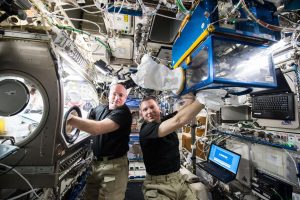What Are the Benefits for Us?
For centuries, humans have been fascinated by the mysteries of the universe, driving us to venture beyond our planet and explore unknown environments beyond our solar system. In today’s world, the question of why we should embark on space exploration voyages goes beyond mere curiosity. Ultimately, space exploration is a necessity with wide-ranging implications. It’s not just an; instead, it involves both intrinsic and extrinsic benefits to humanity.
Space Exploration Advances Scientific Understanding

At the core of our pursuit for space exploration lies humanity’s thirst for knowledge. The universe, with its galaxies, stars, and planets, awaits our full understanding. By venturing into space, scientists can utilize a multitude of instruments such as probes, satellites, and state-of-the-art telescopes to gather data about celestial bodies and investigate the universe in its natural state.
Exploring our solar system and beyond not only deepens our comprehension of the cosmos but also contributes significantly to advancements in astrophysics and cosmology. Space exploration plays a crucial role in expanding our understanding of the universe—from studying planets to uncovering the mysteries of black holes, dark matter, dark energy, and other groundbreaking subjects.
Space Exploration: Searching for Other Habitats and Alien Life
The search for other potential habitats and intelligent life is a fundamental part of space exploration. Scientists examine the atmospheres of exoplanets and identify potentially habitable celestial bodies to determine if conditions exist that could support life beyond our planet. Space exploration is also a chance to answer the age-old question of whether we are alone in the universe or if distant civilizations exist. It offers greater insights into the origins and existence of life itself.
Space Exploration as a Catalyst for Developing Technology and Economic Prosperity
The challenges of space exploration spur innovation, driving advancements in fields like astrobiology and astrochemistry. These developments lead to cutting-edge technologies with far-reaching implications here on Earth. Many scientific breakthroughs from space exploration have applications across various industries, benefiting society as a whole.
GPS Technology and Other Valuable Space Exploration Spin-Offs
Throughout history, numerous technological products originally developed for space exploration, such as cell phone cameras, solar panels, and emergency beacons using satellite technology, have seamlessly transitioned into everyday technologies. A prime example is the Global Positioning System (GPS), which relies on satellite navigation to provide precise location information.
Initially created for space missions, GPS has now become an indispensable part of our lives, influencing a wide range of industries—including transportation and agriculture—while offering accurate location-based services around the globe.
The Economic Promise of Space Exploration
The economic advantages of space exploration extend beyond technological advancements. The growth of the space travel industry, involving both governmental space agencies and private companies, contributes to job creation and economic progress. Collaborative efforts between private entities in space exploration drive competition and innovation in this sector, resulting in technological advancements that benefit not only space missions but also various industries on Earth.
Space Exploration and Human Survival
Despite Earth’s resilience, it is not immune to celestial threats that could have catastrophic consequences on human life. One crucial aspect of space exploration is the identification and monitoring of near-Earth objects (NEOs) such as asteroids and comets that could pose a risk to our planet. Developing the capability to detect, track, and potentially mitigate the impact of NEOs plays a critical role in defense strategies. Space exploration provides us with the tools, resources, and knowledge to protect our planet from dangers in the vastness of space.
The Potential for Colonization

Exploration efforts also present humanity with an opportunity to establish a presence beyond our own planet. As our population continues to grow and Earth’s resources become increasingly strained, the idea of colonizing space must evolve from a dream to a potential solution for ensuring the long-term survival of our species. Perhaps one day, we might see a space settlement on Mars or another environment made hospitable to human life.
By learning how to live in space environments such as the International Space Station (ISS) and other spacecraft, we can gain crucial insights into sustainable space life. This includes managing resources, understanding how the human body can remain healthy in space, creating life support systems, and acting as responsible stewards of our environment. These lessons can hopefully be applied back on Earth to avoid further catastrophes and improve interactions among nations.
Space Exploration Fosters International Cooperation and Trust
Space exploration is inherently collaborative, fostering cooperation and diplomacy among different countries. Space missions requiring the joint efforts of multiple nations help bring them together in pursuit of common goals, despite geopolitical tensions that may dominate their relations. The International Space Station (ISS), for example, involves collaboration with space agencies from the United States, Russia, Europe, Japan, and Canada. This international partnership ensures a continuous human presence in space.
Participating in space exploration projects goes beyond mere scientific cooperation. It helps build trust among nations, facilitates the exchange of expertise, and promotes peaceful collaboration that ultimately benefits future generations of humanity. The collective experience of venturing into space unites people and gives them a purpose, regardless of political or cultural differences.
The Exploration of Outer Space Inspires Us to Improve Ourselves
The exploration of space showcases humanity’s curiosity and determination to conduct research and overcome challenges. New technologies developed during the space race—such as the Apollo moon landings, the James Webb Space Telescope, robotic spacecraft, the space shuttle program, and the construction of the International Space Station—not only demonstrated human innovation but also left an everlasting impact on all of us.
Iconic images of Earth seen from space through advanced technology instilled a sense of interconnectedness and environmental awareness. Satellite imagery helped us develop a greater appreciation for Earth’s beauty.
Investing in space exploration sends a message to society about the potential within each individual. Overcoming the obstacles of space travel requires creativity, critical thinking, problem-solving skills, and perseverance—attributes essential for addressing social, economic, and national security challenges faced by humanity.
Exploring Space Fosters Societal Values That Benefit Humanity
Creating a culture that values space exploration contributes to shaping a society that prioritizes education, innovation, and the relentless pursuit of knowledge. It lays the groundwork for a future where humanity pushes boundaries and achieves significant accomplishments.
Furthermore, space exploration inspires future generations. Children and young adults growing up in a world influenced by the wonders of space exploration and human spaceflight are more likely to be captivated by fields like science, technology, engineering, and mathematics (STEM). The impact of space exploration on education is profound, inspiring students to dream big, think smart, and pursue careers contributing to the advancement of knowledge and technology.
Space exploration is a journey of self-discovery. It offers an opportunity to understand our role in the universe and demonstrates the unwavering human spirit of curiosity and determination. As we continue to study other planets, marvel at the beauty of the night sky, and contemplate the mysteries of the universe, venturing into space is a transformative endeavor aimed at improving humanity.
Space Studies at American Public University (APU)

For those seeking a deeper understanding of space exploration, degree programs focused on space studies—like those offered by American Public University (APU)—are invaluable. These programs typically cover fields such as astrophysics, astronomy, planetary science, space programs, and space technology.
The hands-on learning opportunities provided in these programs allow students to apply their knowledge to real-world situations through activities like online laboratory work, research, and practical projects.
For instance, one master’s-level course called “SPST631 Astrophysical Studies” delves into various aspects of astrophysics. Students explore subjects like star properties, galaxy characteristics, diversity on other planets, and cosmic structure dynamics while examining the underlying processes.
Courses offered at APU integrate knowledge from other fields, promoting a holistic approach that allows students to appreciate the significance of space administration and space exploration. Ultimately, these programs equip individuals with knowledge, practical skills, and a multidisciplinary mindset, enabling them to contribute to the continuous exploration of our expansive universe.
About the Author
Dr. Gary Deel is an associate professor with the Dr. Wallace E. Boston School of Business at American Public University. He currently holds 13 degrees in fields such as space studies, hospitality and tourism management, psychology, higher education administration, and criminal justice, including a J.D. in Law and a Ph.D. in hospitality/business management. Dr. Deel teaches human resources and employment law classes for American Public University, the University of Central Florida, Colorado State University, among others.
Conclusion
In summary, space exploration is far more than a journey into the unknown—it is a vital undertaking with profound benefits for humanity. Our ventures into space advance scientific understanding, opening up new horizons in astrophysics and cosmology. Space exploration propels us to search for other habitable planets potential extraterrestrial life, expanding our knowledge of the universe.
ological advancements driven by space exploration have led to numerous innovations, ranging from GPS technology to everyday conveniences. The economic benefits of the space industry are substantial, catalyzing job creation and fostering competition and innovation across various sectors.
Space exploration is also crucial for human survival, equipping us with the tools to detect and possibly mitigate celestial threats, and offering the potential for space colonization as Earth’s resources become strained. Moreover, it serves as a platform for international cooperation, fostering diplomacy and trust among nations.
The ventures into outer space inspire humanity, pushing us to improve ourselves and our world. It nurtures a society that values education, innovation, and the relentless pursuit of knowledge, providing a foundation for future generations to dream big and achieve significant accomplishments.
As we continue to explore the cosmos, our journey not only addresses the existential questions of our place in the universe but also reinforces the shared human spirit of curiosity and perseverance. Space exploration is a transformative endeavor that aims to improve humanity, showcasing what we can achieve when we reach for the stars.









